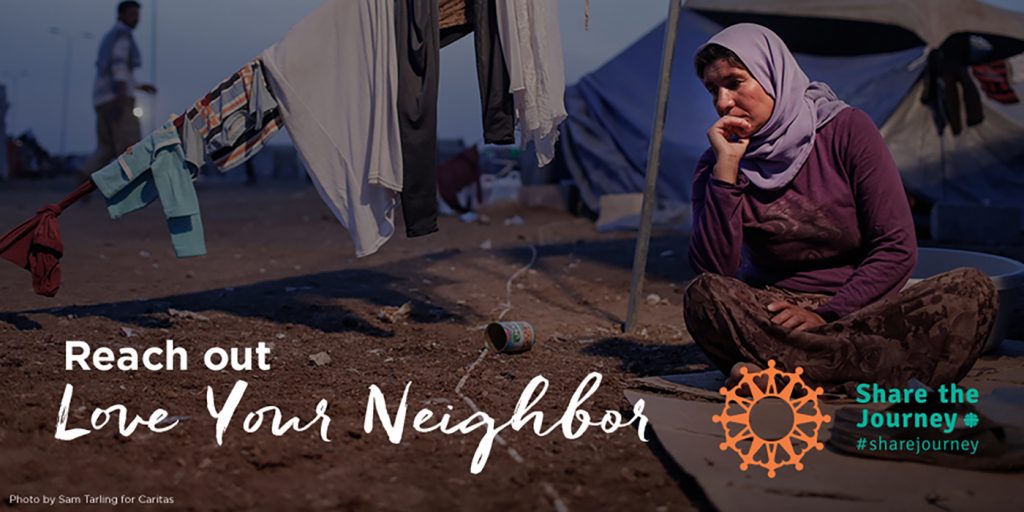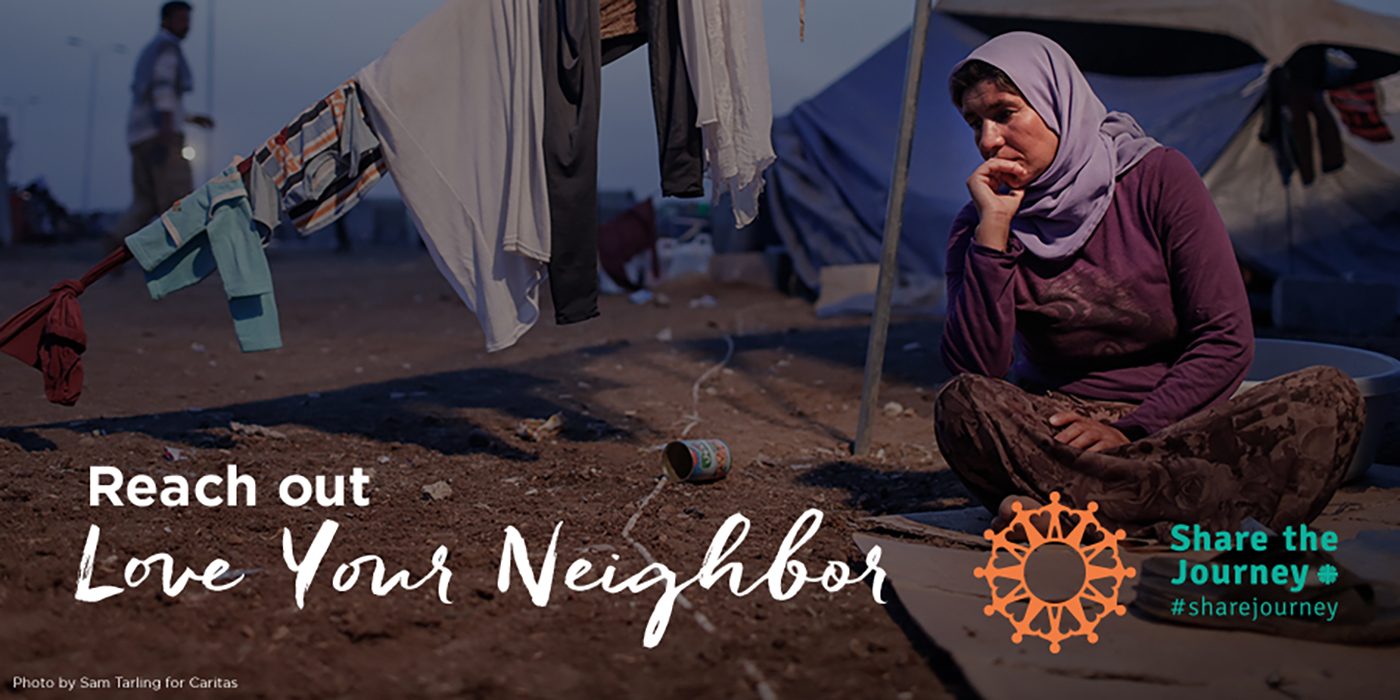April 7, 2018 // Diocese
Alone on a journey of hope
Ecuador is small country with few job opportunities. Food and clothing are hard to come by without any money. Citizens rely on each other, within their neighborhoods, in a way that has been lost in American culture today. Many Ecuadorians are hungry and poor, and occasionally they will risk their lives — and their dignity — for a better life.
One such Ecuadorian woman lives in the Fort Wayne area. She spent her first 20 years growing up in Ecuador, then was granted a scholarship to study at a university in Mexico. By then she was the mother to a baby girl.
After studying for a year, and with few job prospects once she returned to Ecuador, she made the heart-wrenching d
ecision to leave her infant daughter in hopes of a better life in the United States. Her goal was to earn money she could send home to her family to care for her daughter, who is now 17 years old.

It costs between $13,000 and $15,000, and a great deal of time-consuming paperwork, however, to go through Immigration to become a United States citizen — money she did not have. So after much thought and planning, she boarded the plane from Ecuador to Mexico — legally, because of her student visa — but then looked north.
From Mexico, she then made several attempts, during an 11-day journey, to swim the Rio Grande River and cross the border into the United States. She constantly feared being raped, killed or deported until she reached Indiana, where she felt safe. Food was in short supply during the trip, she said. She ate maybe one tortilla per day, and drank some water. But without the student visa, the trip would have been much longer and even harder: probably three or four months, she estimated, and would have entailed hiding out on barges traveling between Ecuador and Mexico.
Beginning a new life in the U.S., she now contributes to her parish in the Diocese of Fort Wayne-South Bend. She gave birth to two more children in the United States, and the older son attends Catholic school. She cleans houses and does small jobs for others so that she can pay her bills and send money back to Ecuador for her daughter.
She hears people say that immigrants are taking jobs from citizens of the United States. She believes immigrants do those jobs no one else wants.
She still fears deportation back to Ecuador: not only for herself but for her sons, who know nothing about survival in her country. But, she said, “You have to lose something to gain something.”
Because she came here illegally, she has not been able to return to her homeland to see her daughter. She talks to her, though, and sees photos of her through social media. Her parents died a few years ago, and she could not attend their funerals.
In the United States, some Americans speak of being in low-paying jobs or not having the job they would prefer. A small percentage are unemployed. Jobs are far scarcer in Ecuador, she elaborated, and poverty much more extensive.
If a woman does not have a cup of sugar, for example, she is expected to go without, or knock on the door of a neighbor. Even if the neighbor does have enough to feed her own family, it is customary that she would give sugar to the neighbor who was at the door. However kind, this Ecuadorian mother wanted more for her daughter.
She lost her parents, physical proximity to her daughter, her friends and her native culture. She is quick to offer, however, that Americans can help immigrants by helping them learn the cultural differences, and telling them where to get necessary food and clothing since they do not qualify for assistance programs subsidized by the government.
The best news. Delivered to your inbox.
Subscribe to our mailing list today.






